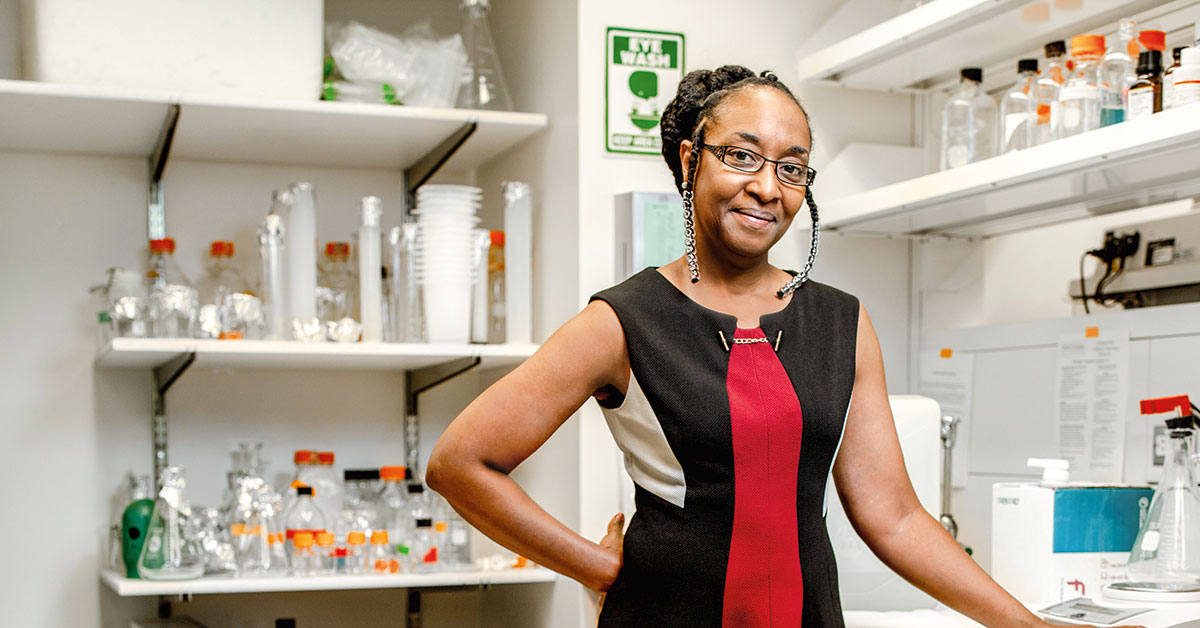
PHILADELPHIA (September 15, 2022)—Researchers at Fox Chase Cancer Center have been awarded a three-year $250,000 grant to investigate methods of improving the cardiovascular management of patients with prostate cancer being treated with androgen deprivation therapy (ADT).
“I was quite pleased to know that the grant reviewers felt so highly about the potential impact of this study and also excited to know that we will finally have the funding to complete such an important study,” said Camille Ragin, PhD, MPH, a professor in the Cancer Prevention and Control research program and one of the principal investigators on the study.
The award is from the National Comprehensive Cancer Network, through a grant provided by Pfizer and Myovant Sciences. Ragin, who is also Associate Director of Diversity, Equity, and Inclusion, will conduct the study with Daniel M. Geynisman, MD, chief of the Division of Genitourinary Medical Oncology in the Department of Hematology/Oncology.
Prostate cancer is the leading cause of cancer deaths for men in the United States. Black men are diagnosed with more aggressive disease and have higher mortality on average in comparison to white men, despite major therapeutic advances in prostate cancer treatment—specifically, ADT and novel androgen-axis inhibitors.
Given these disparities, Ragin and Geynisman will study whether African genetic ancestry increases the risk of preexisting cardiovascular disease and cardio-metabolic traits among Black prostate cancer patients. They will also investigate if increased atherosclerotic cardiovascular disease risk following initiation of ADT is observed to a greater extent among Black patients compared to white patients.
Other Fox Chase researchers involved in the study are Shannon Lynch, PhD, MPH, an assistant professor in the Cancer Prevention and Control research program; Eric Horwitz, MD, FABS, FASTRO, chair of the Department of Radiation Oncology; and Karthik Devarajan, PhD, associate professor of population science in the Biostatistics and Bioinformatics Facility. Daniel Edmundowicz, MS, MD, FACP, FACC, medical director of the Temple Heart and Vascular Institute, will also collaborate on the study.
“The majority of studies examining cardiovascular disease outcomes among prostate cancer patients have been conducted primarily in Caucasian patient populations,” Ragin said. “Our study will fill these knowledge gaps and also examine for the first time whether there are disparities in cardiovascular outcomes according to self-reported race/ethnicity and also according to genetic ancestry.”
The study is designed with two objectives in mind. The first involves performing a retrospective analysis of clinical data to determine the association of race with metabolic equivalents, cardiovascular disease events, or atherosclerotic cardiovascular disease risk score prior to prostate cancer diagnosis, and comparing the risk of cardiovascular disease-specific death according to race.
The second objective is to examine the impact of ADT on atherosclerotic cardiovascular disease risk, cardio-metabolic outcomes, and cardiotoxicity by race and genetic ancestry.
To accomplish this, the study will take advantage of the Fox Chase and Temple Health infrastructure by examining electronic medical record data for a very large number of prostate cancer patients treated by the two institutions. The study will also use data collected by the U.S. National Death Index and census, amongst other sources.
“I am looking forward to the findings from this work and equally looking forward to determining how we might be better able to improve patient outcomes,” said Ragin. “I hope this work will also help us understand whether or not there are racial/ethnic disparities in prostate cancer outcomes as it relates to cardiovascular disease.”